The Independent's journalism is supported by our readers. When you purchase through links on our site, we may earn commission.
Chiang Mai city guide: Where to stay, eat drink and shop in Thailand’s northern creative hub
Enveloped in nature and packed with authentic experiences from massages to meeting with monks, this northern Thai city is not to be missed, says Lucie Grace


Lovingly known as Thailand’s “second city”, Chiang Mai is a place where contemporary culture meets ancient tradition; a low-rise, wide-spanning metropolis full of medieval architecture, hip live music venues and a deeply Buddhist population. Founded in 1296, the city sits between mountains, jungle, river and rice fields, so it is in close proximity to nature on all sides – with views of the mountains framing most west-facing streets. The medieval moat and walls mark out the perfectly squared old city, known for its exceptional food, beautiful temples and lovely inhabitants.
It’s a vibrant university town, plus a hub for yoga practitioners and remote workers, so the nightlife is vibrant and diverse; you’re just as likely to find yourself at an EDM festival as at a Tibetan sound bath.
In this guide, I have rounded up the best things to do in Chiang Mai, the top hotels and hostels to stay in, as well as our recommendations on where to eat and drink.
What to do
Temple hop
Chiang Mai is famous for its terracotta brick temples – there are over 200 of them in the city, bringing in domestic and international visitors alike. (Thais from across the country come here to make merit, Buddhist energy gathered by doing good deeds.) The oldest is Wat Chiang Man, in the heart of the old city – its elephant-lined stupa has sat in situ for over 700 years. Almost as old and just as enthralling are Wat Umong, whose labyrinthine passageways were designed for walking meditation, and Wat Jed Yot, which stands out for its unusual, Indian-style design.
Other favourites are Wat Pha Lat, set in the forest halfway up Doi Suthep mountain, and Wat Suan Dok, home to the graves of the Lanna kings who ruled the region for centuries before it was incorporated into Siam (later renamed as Thailand).
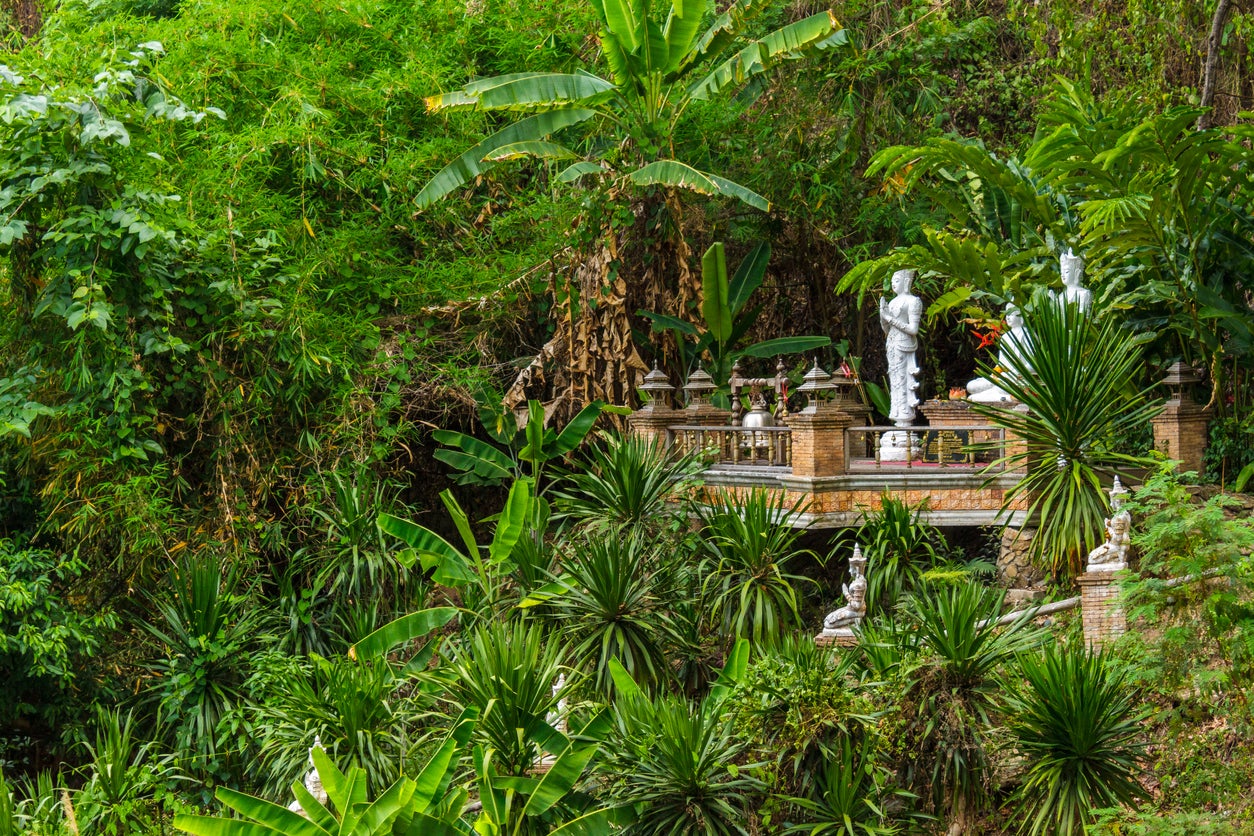
Graze on street food
This is a culinary paradise, with some of the best street eats in the country on offer. Vendors sell bowls of spicy noodle soup or skewered meats on just about every main junction in the old city. To make sense of it all, join Noot and her team at Chiang Mai Foodie Tours; they lead a fantastic four-hour loop from £30. Or level up your own gourmet skills with a cooking class at family-run Asia Scenic Thai Cooking School (from £27 for a full day) or longstanding Thai Farm Cooking School (£27 for a half day or from £34 for a full day). Both companies give lessons on their lush organic farms and will pick you up from your accommodation at no extra charge.
Read more: From peaceful wildlife to buzzing Bangkok – put your money on Thailand for longhaul winter sun
Get an expert massage
Chiang Mai is an epicentre of northern Thai healing principles, with some of the most unusual yet effective traditional methods in its spas and salons. Specific to the region is tok sen, a massage that utilises a wooden block and hammer to realign your muscles: try it at the Thai Traditional and Complementary Medicine Center. Another Thai method is yam khang fire therapy, where your therapist dips their foot in medicated oil, heats it on iron over fire, then massages your body with their foot, relieving pain and releasing blocked energy. This practice can be booked at Anantara Chiang Mai Resort’s Spa. Or try a soak in a Lanna-style herbal steam room; the nicest private booth is bookable at the charming Heart N Soul spa.
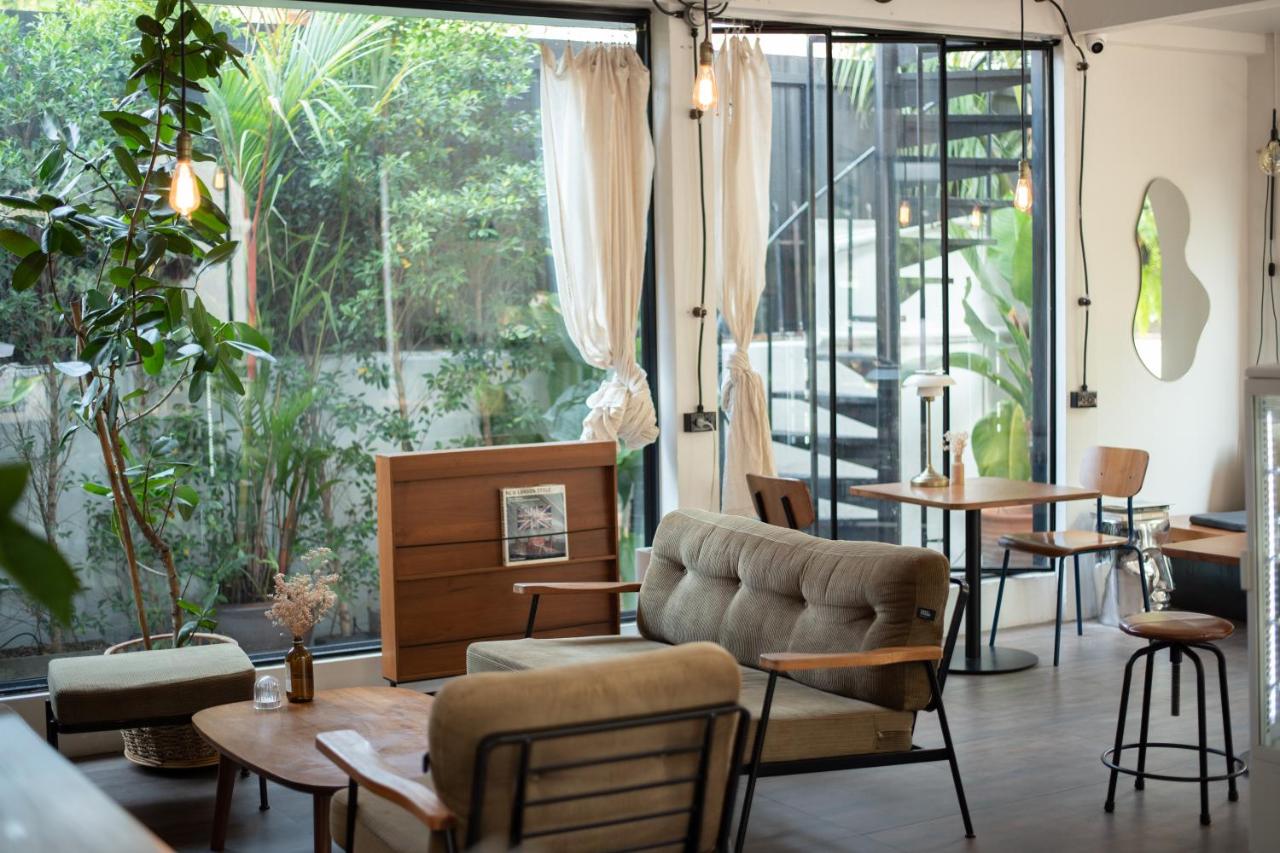
Read more:
Where to stay
Bargain beds
Chiang Mai is home to one of the biggest clusters of hostels in Thailand, many of which are enjoyably bijou and civilised. The likes of The Common Hostel, August Hostel and Sylvis Hostel will see to it that you have a social yet culturally rich time.
Eleven Pillar Site
Best of the small guesthouses in the old city is Eleven Pillar Site, which is a steal price-wise and a win for design lovers. The hotel has gone for Scandi minimalist textures while keeping a very strong Chiang Mai vibe, using local interior designers Pommballstudio and furniture makers Crop Mark to platform some of the sleekest style in town throughout his hotel. Alongside the four boutique rooms, there is a cafe on site that serves coffee and breakfasts to accompany a menu of home-cooked Thai meals, as well as a small store selling unique gifts.
Read more: The best hotels in Chiang Mai for boutique stays and luxury getaways
The Inside House
Also in the heart of the old city is an ultra swish boutique stay, The Inside House – a sumptuous architectural homage to the Lanna-era gingerbread houses of the late 1800s. Built around a tall, elegant bodhi tree, finely carved woodwork adorns every corner of the hotel, from the leafy poolside pavilion to the elegant lobby and restaurant. This isn’t the only jaw-dropping feature, though; some of the heavenly, individually designed rooms have their own private pool and freestanding bathtubs en suite. You’ll be loath to leave for breakfast and high tea, so have it delivered to your door.
Onsen at Moncham
If you’re celebrating or treating yourself, head to the gloriously located Onsen at Moncham. It’s a completely serene, Japanese-style luxury hotel that sits amid the rice terraces in gorgeous Mon Jam, a quaint mountainside region in greater Chiang Mai that’s just 40 minutes out of the city centre. The peaceful resort has different onsen baths to enjoy – mixed-gender garden onsen, and male and female separated baths indoors – plus most rooms come with an ensuite onsen of their very own, which the staff will make for you. The in-house dining experience blends Thai and Japanese cuisine with European favourites.
Read more: I travelled to Thailand’s White Lotus hotels to discover what to expect from season three
Where to eat
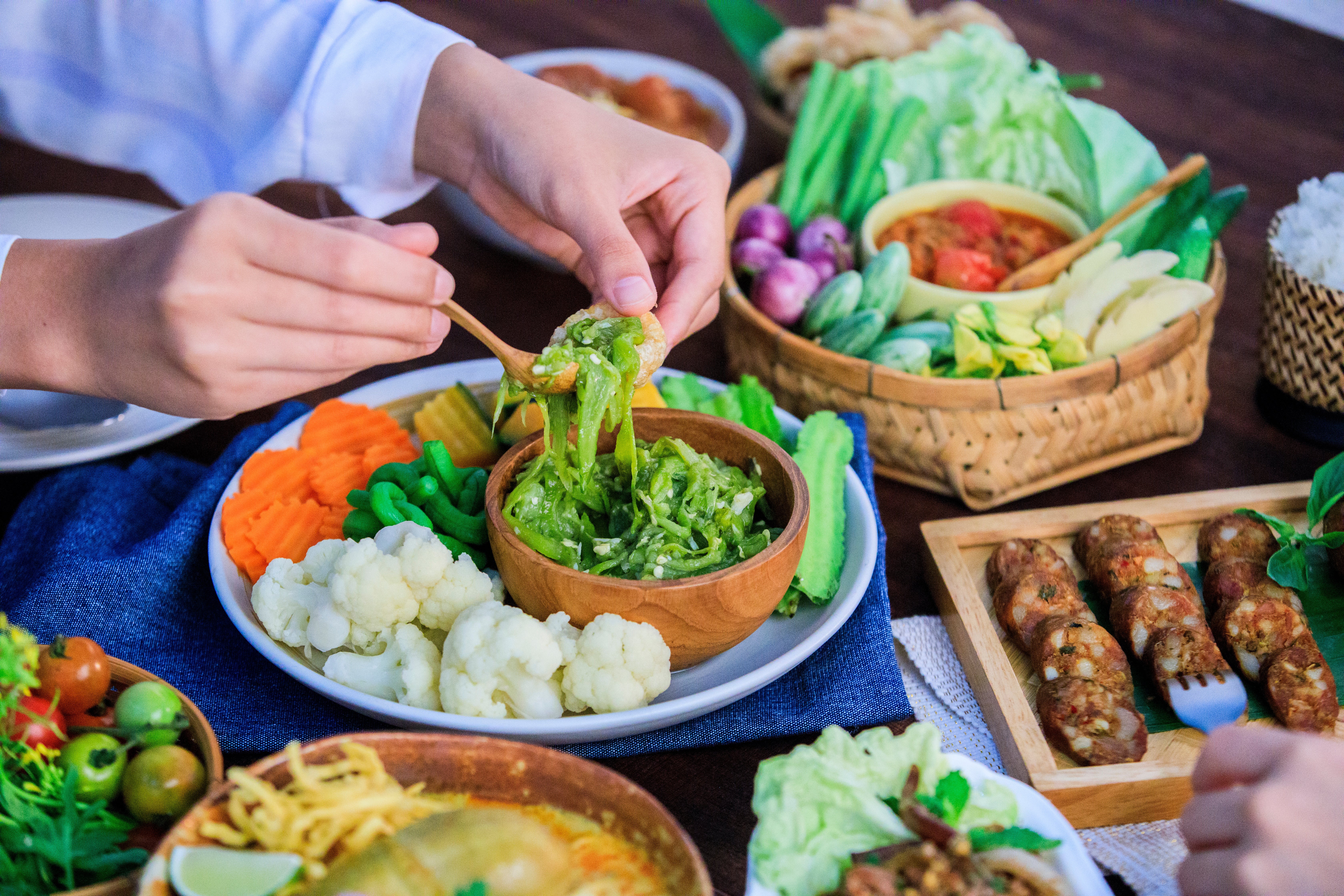
Classy yet full of homey character, it’s the decor and the service that put the home in B Samcook Home 16, with collections of plants, paintings and antiques filling the atrium-like space. Chef Boy circulates the tables to explain his seasonal seven-course tasting menu, which is also available for vegetarians and vegans, delivered by his attentive staff who make sure diners are happy and full. The careful service even extends to driving you home if you’ve enjoyed their wine pairing with your dinner. Book well in advance.
Michelin-listed and a firm favourite with both locals and visitors, Ginger Farm Kitchen is one of three branches of Ginger Farm, who grow its own organic produce just southeast of the city. This outpost in swanky shopping quarter One Nimman serves elegantly presented and super fresh plates of Thai staples like red and green curries and Som Tum papaya salad that burst with flavour. Pre-booking is advised, particularly in peak season (Nov-Feb).
Read more: Why you need to take the slow boat from Thailand to Laos
Another foodie staple in nightlife hub Nimman is a Michelin-listed spot that specialises in the dish of the north: Kao Soy Nimman, who make – you guessed it – Khao soy. Young, hip staff serve an extensive khao soy menu that sees exceptionally tasty varieties of the flat noodle soup sold here, made to spice level perfection (not horrific, but with a good kick). Service is fast and cheap once seated, but expect a queue.
Chiang Mai has a burgeoning plant-based scene, and one of the first who lead the way is long-standing favourite Vegan Heaven. This restaurant offers a lengthy menu of western and Thai dishes, which includes an unmissable Massaman curry, known to be the best vegan version of the local dish available in the city. It’s wise to book a table at peak times.
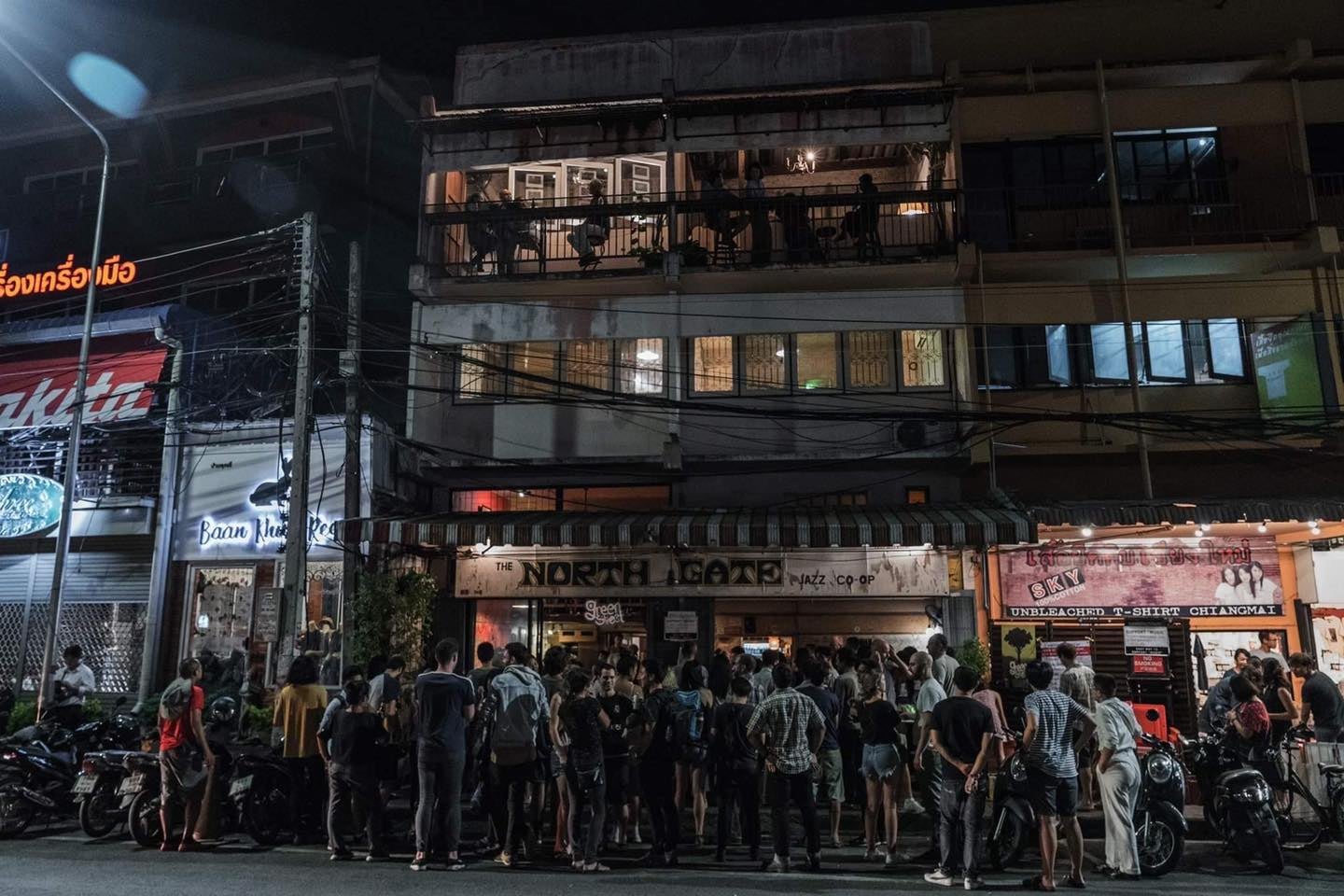
Where to drink
Chiang Mai’s coffee scene is booming, with world-class roasters launching and flourishing in the past 10 years. Leading chain Baristo is one to prioritise; both Baristo by the River and Baristo Asian Style are set in fantastic buildings in idyllic surrounds (it’s a £1.80 entry fee for the latter due to the swathes of Instagrammers who’d come in for shoots without ordering – but you can use it as credit towards your bill). Their menu of hot, iced or cold-brewed coffee is extensive and baked treats like their salted caramel cheesecake go perfectly with caffeinated fare.
Trendy neighbourhood Nimman is packed with award-winning coffee shops like Ristr8to Original, which leads the way with artistry and presentation, and Roast8ry Lab, who take an almost scientific approach to brewing the perfect coffee. There are also swathes of bars that stay open until the small hours, such as The Continental Bar and Surr Bar.
Music lovers are in for a real treat in the city: there’s quality live music every night of the week in Chiang Mai. Veterans of the scene, North Gate Jazz Co-op, host raucous open mics, as well as booking an eclectic range of jazz acts. Popular with the local cool kids, MaHoRee city of music specialises in traditional Lanna Thai sounds – you’ll often run into a band with a Ranat ek player, a rare style of xylophone. Or for something funkier, check the line-up at Thapae East, the spot for blues and soul.
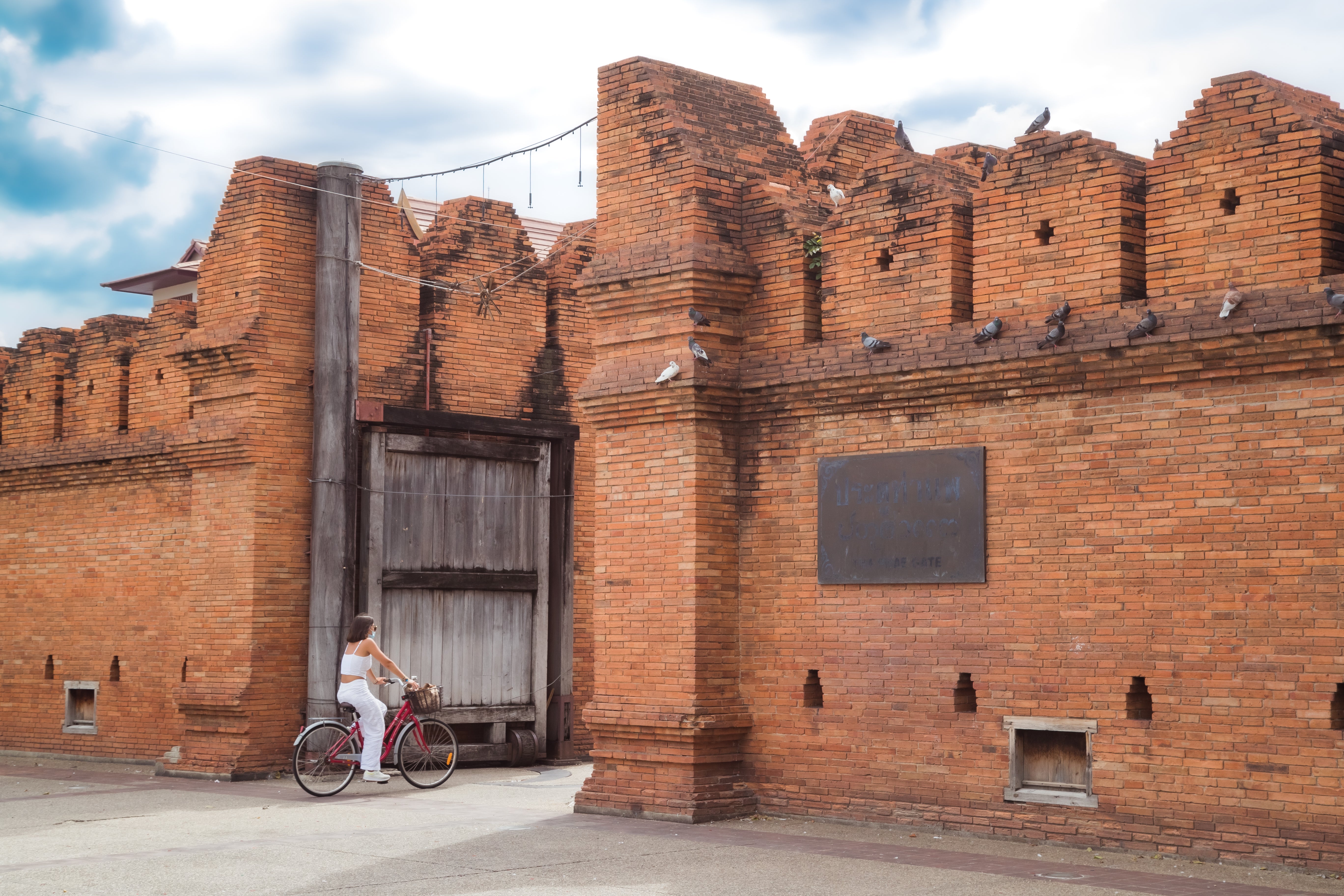
Where to shop
The mother of all Chiang Mai shopping experiences is visiting a night market. The city has a few, but none so grand as the Sunday Night Market, aka Tha Pae Walking Street. It’s a weekly jamboree of colours and flavours that reaches from Wat Phra Singh on the western helm of the old city all the way to Thapae Gate on the eastern side. Stalls are packed in and visitors shuffle along the one-way system (keep left, like the road traffic), much like all of Thailand’s infamous night markets, only here you’ll find a Lanna aesthetic which is very pro crafts, such as block printing, wax seals, watercolour postcards, quintessentially Northern Thai textiles and hill tribe handicrafts with very chunky stitching. There’s also a cascade of local foods to try here; keep your eyes peeled for Ba Bin, the coconut-flavoured mini pancakes.
Additionally, the city is home to posh yet affordable boutiques, like the Weave Artisans Society, where the annexe upstairs sells designer homewares and elegant clothes that are more upmarket than those on the walking street, using big block prints and locally made fabrics. If you miss the markets, shop for gifts in Kaew Gallery, which, as well as selling pieces of art of all sizes, also has a fantastic range of artisanal jewellery, homewares and ornaments in stock.
There’s more bamboo than you can shake a stick at in Wyenumpueng Changmoi Furniture. The store exclusively sells rattan bags, hats, furniture and homewares, run by an endearing old couple who will source your dream rattan item if they don’t have it in stock. Around the corner, Siamaya Chocolate sells exciting flavoured bars, made from locally grown cacao; the Khao Soy or Masala Chai flavours are a must to take home.
Read more: Bangkok city guide – where to stay, eat, drink and shop in Thailand’s flavour-packed gateway
Architectural highlight
The Treasury Museum Chiang Mai is design bliss. A lovely bit of Tropical Modernist architecture, the building was completed in 1967 as the residence of a Northern Thai (now Myanmarese) prince, and converted to a museum in the 1990s. The pastel pink exterior, with grandiose slabs of coloured marble, will draw you in, but it’s the wood-panelled interiors, flooded with natural light from the huge windows, that really impress.
Nuts and bolts
What currency do I need?
Thai baht.
What language do they speak?
Thai.
Should I tip?
10 per cent.
What’s the time difference?
GMT+7.
How should I get around?
The city’s red Songthaew vans charge approximately £1 (40 THB) per journey. Motorbike taxis are the fastest option; use apps Grab or Bolt to hail them. Or rent a bicycle or a moped if you are a licensed, confident driver.
What’s the best view?
The view back down over Chiang Mai from the hillside temple Wat Pha Lat really shows just how wide and vast the city is.
Insider tip?
The best Thai massages are available in the temples. They’re not luxurious or private, but join the locals in the big massage halls and get ironed out, cheaply.
Getting there
British Airways, Thai Airways and EVA Air all have direct flights to the Thai capital, Bangkok, from where you can fly domestically or lower your carbon footprint by taking a train (10–14 hours) to Chiang Mai.
Read more: Ditch Phuket’s crowds for these beautiful Thailand islands instead
Join our commenting forum
Join thought-provoking conversations, follow other Independent readers and see their replies
Comments





Bookmark popover
Removed from bookmarks